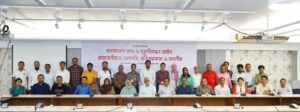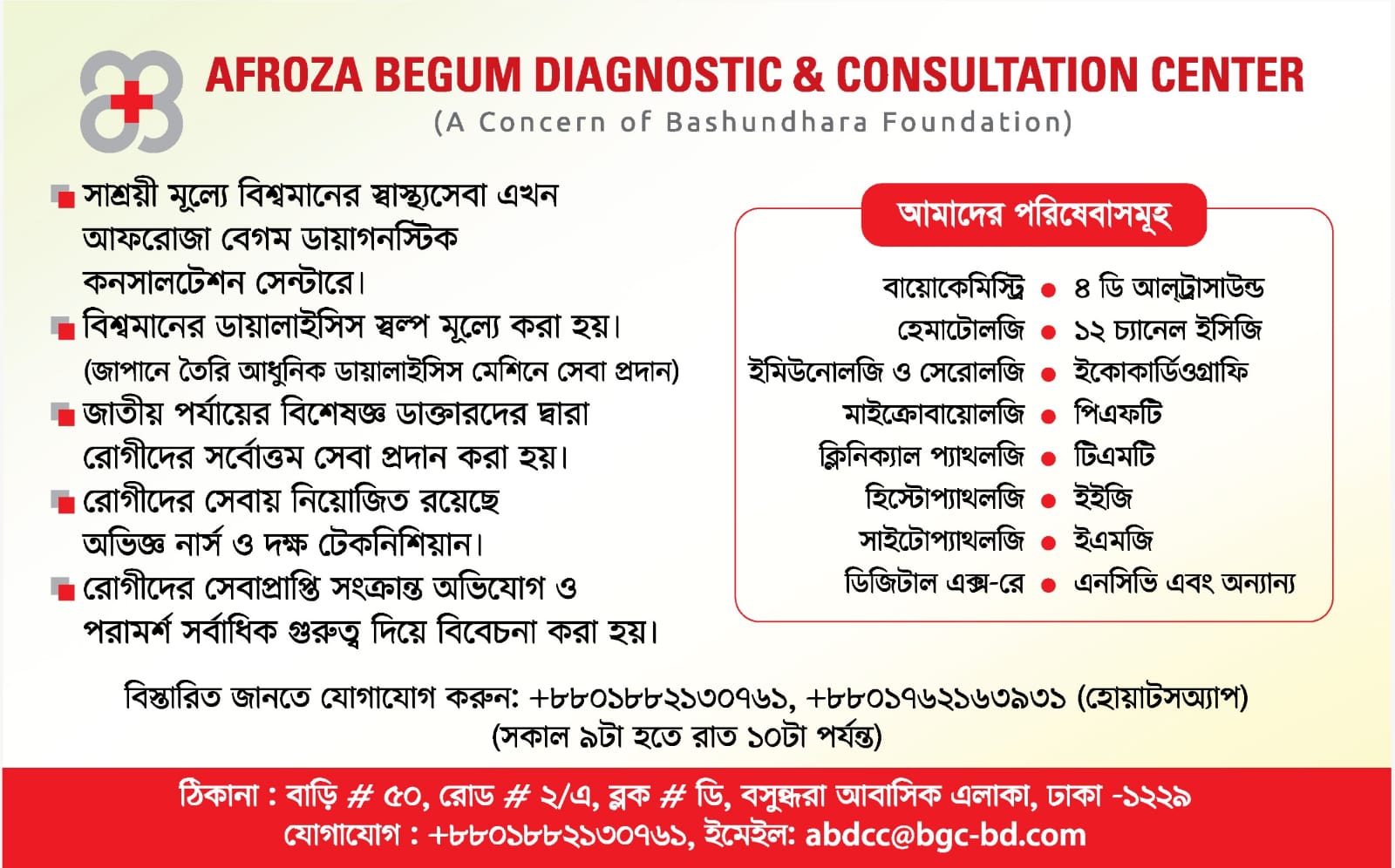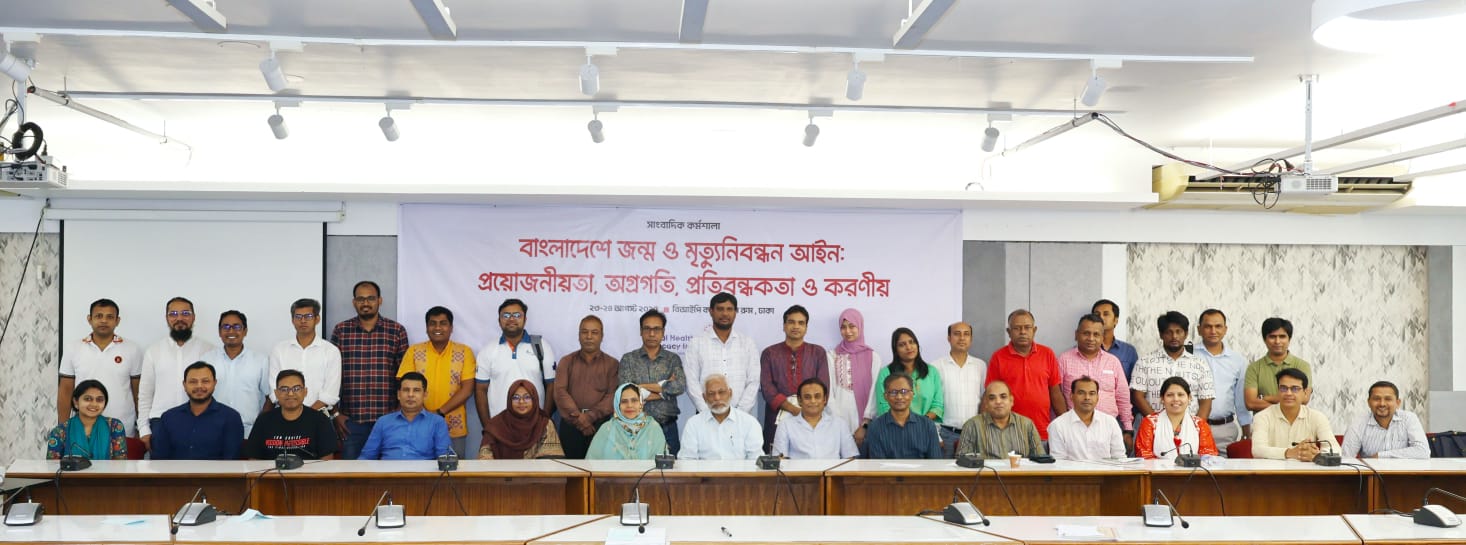
Staff Reporter : It is crucial to strengthen and update the existing law to ensure universal birth and death registration in Bangladesh. As an active participant in the Civil Registration and Vital Statistics (CRVS) Decade initiative, announced by UNESCAP, the Government of Bangladesh has pledged to achieve 100% birth and death registration by 2030. In addition, the SDG target 16.9 has prioritized providing legal identity for everyone, including birth registration. Against this backdrop, legally bestowing the responsibility of registration on hospital authorities could lead Bangladesh towards achieving the anticipated targets. These issues were highlighted by discussants at the 2-day long journalist workshop titled “Birth and Death Registration in Bangladesh: Progress, Challenges and Way Forward”, held on 23–24 August 2025 at the BIP Conference Room in Dhaka. The workshop was organized by PROGGA (Knowledge for Progress) with support from the Global Health Advocacy Incubator (GHAI). A total of thirty journalists from print, television, and online media outlets participated in the workshop.

During the workshop, it was informed that the current birth registration rate in Bangladesh stands at 50%, which is much lower compared to global and regional averages. According to UNICEF, the global average rate of birth registration in 2024 stands at 77%, while the rate in South Asia is 76%. Meanwhile, Bangladesh’s death registration rate is 47%, whereas the global average is 74%. At the individual level, birth and death registration ensures access to fundamental rights such as citizenship, education, healthcare, inheritance, and voting rights. At the national level, accurate population and health data play a vital role in planning, budgeting, public health, and good governance.
During the workshop, it was highlighted that although around 67% of children in Bangladesh are born in healthcare facilities, hospitals have not been authorized to register births and deaths. Under the existing law, the responsibility of providing birth and death information to the registrar lies with the family, while the health sector’s role remains optional. Global experience shows that assigning this responsibility to institutions rather than individuals significantly increases registration rates. In many Asia-Pacific countries, entrusting hospitals with the responsibility of registering all births and deaths occurring within their facilities has enabled them to achieve 100% or near-universal registration coverage.

Speakers at the workshop further noted that in Bangladesh, lack of public awareness, complexities in the registration process, technical problems, and weak coordination with the healthcare sector pose major barriers to implementation of the law. Apart from emphasizing the importance of enforcing the existing law effectively, speakers also pointed out legal limitations hindering progress in birth and death registration. It was suggested that by amending the Birth and Death Registration Act, 2004, to legally mandate government and private hospitals, clinics, and healthcare facilities to register births and deaths, Bangladesh could accelerate progress towards global registration targets as well as the SDGs.

Muhammad Ruhul Quddus, Bangladesh Country Lead of GHAI, said, “Assigning the responsibility of birth and death registration to health facilities through law amendment will enable Bangladesh to achieve universal (100%) birth and death registration by 2030.”
Md. Nazrul Islam and Md. Moyeen Uddin, Country Coordinator, Vital Strategies; Mir Masrur Zaman, Senior News Editor, Channel I; Mortuza Haider Liton, Convener, Anti-tobacco Media Alliance (ATMA); Nadira Kiron and Mizan Chowdhury, both Co-convenor of ATMA; and ABM Zubair, Executive Director, PROGGA, were also present as discussants. PROGGA’s Head of Programs, Md. Hasan Shahriar and Coordinator Mashiat Abedin delivered presentations in the workshop.

